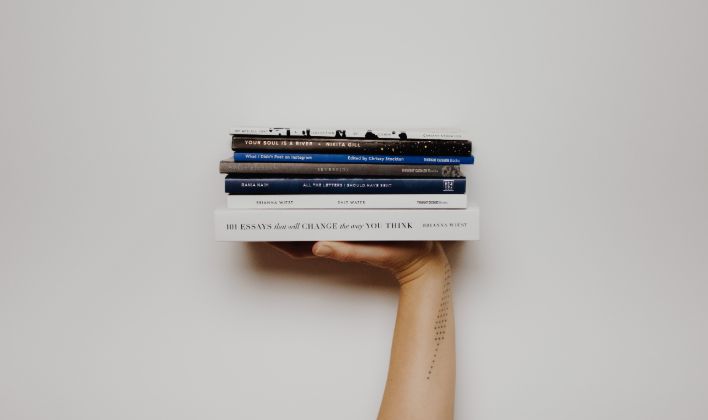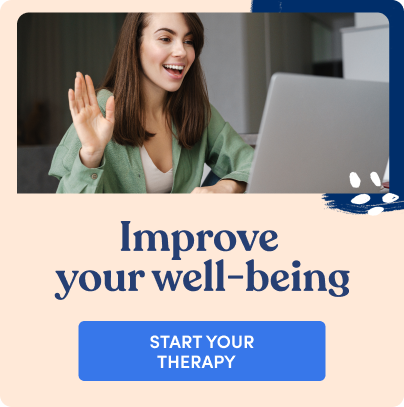You have probably wondered what psychology self-help books are for. In general, literature serves many purposes. One of the most important is entertainment. Another, the search for answers on how we can feel better, also on a psychological level.
Obviously, not all psychology self-help books are good, and we must remember they aren’t miracles either. That is why, as readers, we must be realistic and know that this type of content that we have within our reach is not always adequate to, for example, help us if we are going through anxiety.
What type of books would be recommended?
Any reading that informs us properly about what anxiety is or one that, because of its content and style, calms us down and helps us to divert the focus from our anxiety to more pleasant topics. Any reading that inspires us and allows us to connect not only with our concerns but also with what is going on around us, in a balanced, realistic, pleasant, and calm way.
This type of content can, in principle, constitute a good source of reading in a moment of anguish, high physiological activation, or intense restlessness.
Do psychology self-help books help improve self-esteem?
Many people wonder what books they should read to have healthier self-esteem. They go to the “Self-Help” section of their bookstore of reference and find an array of works that promise them the secret to a better relationship with themselves within its pages.
However, it is important to make it clear that, in order to improve self-esteem as such, seriously, at a deep level, there is no particular book that should be read, at least in the section we have mentioned, because none has that capacity.
Self-esteem does not improve by reading a book, no matter how good it is. A book can inspire us and provide us with points of view that we had not contemplated. It can provide us with some important insights, but it takes more than just reading a book to really improve damaged self-esteem. For example, in addition to reading good books, therapy with a professional psychologist is a much more promising start.
Psychology self-help books
The term “self-help” has become rather overused and, with time and the growth of poor-quality books, has distorted its original meaning and generated a lot of confusion about the true usefulness of psychology self-help books.
In theory, this label refers to the possibility of the reader helping themselves by following the guidance contained in the book as if the book were a recipe synthesized by the best mental health alchemist to solve psychological problems.
There is some of this but, in reality, only when we are talking about superficial and minor issues. However, it does not apply to real and revolutionary personal change: psychology self-help books are no substitute for therapy. As we indicated above, a book can place us on the starting line, it can give us a couple of good tips, it can provide us with an idea that, in turn, can move us to do something of real value but, by itself, it cannot be enough to truly heal or grow.
How do you know which “psychological book” is good?
There is much material in bookstores of the literary subgenre -usually of poor quality and rigor- known as “self-help”. There is also the informative literature on serious psychology, that which is not directly aimed at saving the reader from therapy by reading a book: pretending to do so is a useless effort, although very profitable for the author in many cases. We are talking, therefore, about books oriented to deepen in a specific topic that may be of interest to the general public with concerns about the human psyche.
It is necessary to alert as many times as necessary that in this subject fierce intrusiveness predominates. Gurus, paraprofessionals from different disciplines, charlatans of various origins, and celebrities who have taken a “course” on something and want to generously share their enlightenment with the world, among other characters. This whole universe makes it necessary to be careful with self-help. They confuse the public, making them believe that so-called psychology self-help books can save them from their malaise. In the meantime, they keep them away from the content of real interest.
Cervantes said that there is no book that does not contain something good, so even false literature on true well-being can have a certain interest. But if we have to choose, it is better to choose quality and professional standards.
In short, and given that we cannot read everything, it is advisable that people read books written by real mental health professionals, namely psychologists and psychiatrists with extensive experience in psychotherapy.
Then, within the books written by them, it is advisable to be wary of any book whose title hides a recipe or promise that is too closed and, let’s face it, too promising. Normally this type of book is about how to find happiness and well-being: it is the star topic because it is the one that most concerns the general population… or the one that the market has tried to make it the one that most concerns it.
However, it is legitimate that, for commercial reasons, the titles have a certain style and some “easy” formulas are used to attract attention. The important thing is that the content of the work is correct and does not generate false expectations in the reader nor is it limited to dazzling the reader with a hollow but showy language.
In any case, if reading is not your thing or reading is not enough for you, then perhaps the time has come to take action. That means putting aside the question of what psychology self-help books are for and helping yourself in a much more powerful way.









